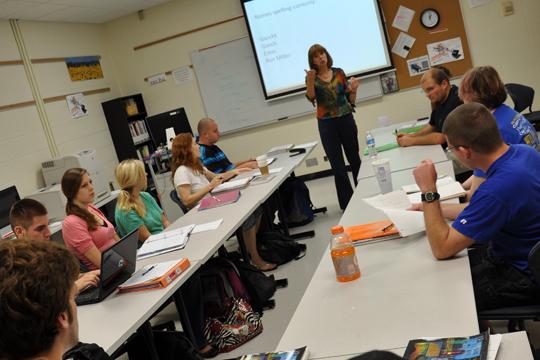Journalism in jeopardy for Kansas high schools
September 21, 2010
Many high schools across Kansas may be cutting funds from journalism programs, because of the lack of jobs that may be available for students in the future.
If the proposal to decrease journalism funds passes through the Kansas State Board of Education in November, state and federal funds for vocational and technical education will begin to decrease for mainly the production of print newspapers in high schools.
Although online news will remain intact through the high schools, some are concerned with the amount of students that will be willing to pursue journalism degrees in college.
“I just think the students will not have the training they currently get now,” said Kristy Dekat, journalism teacher at Topeka West High School. “They’ll be coming to colleges without the basic knowledge and computer skills by taking part in high school journalism classes.”
Dekat’s classes have doubled since last year because of the cutbacks the state has made on teachers already.
Kathy Menzie, chair of the mass media department at Washburn University, believes the university can still work with future journalism students coming from Kansas high schools.
“I think it helps being visible on campus,” said Menzie of the Washburn Review. “And here [at Washburn], journalism includes advertising and PR. Those are still desperately needed, so I don’t see those going away.”
Menzie said that news sources will always be needed, so there will never be a complete cutback on all mass media programs, especially in colleges.
“The need for people who can write well, who can write accurately is not going to go away. You’re still going to need legitimate news sources. Yeah we can get a lot from blogs, but you need someone you can trust,” said Menzie.
Kent Cornish, head of the Kansas Association of Broadcasters, plans to discuss the situation with the Kansas education board this week. He says that cutting back on journalism funds would be a mistake.
“[We will] get the facts and figure out what the Broadcast Association, The Press Association, and high school instructors need to do and who we need to contact to let know that this will not be a good idea,” said Cornish. “There are plenty of jobs. They may just not be what we consider to be traditional jobs in journalism.”



